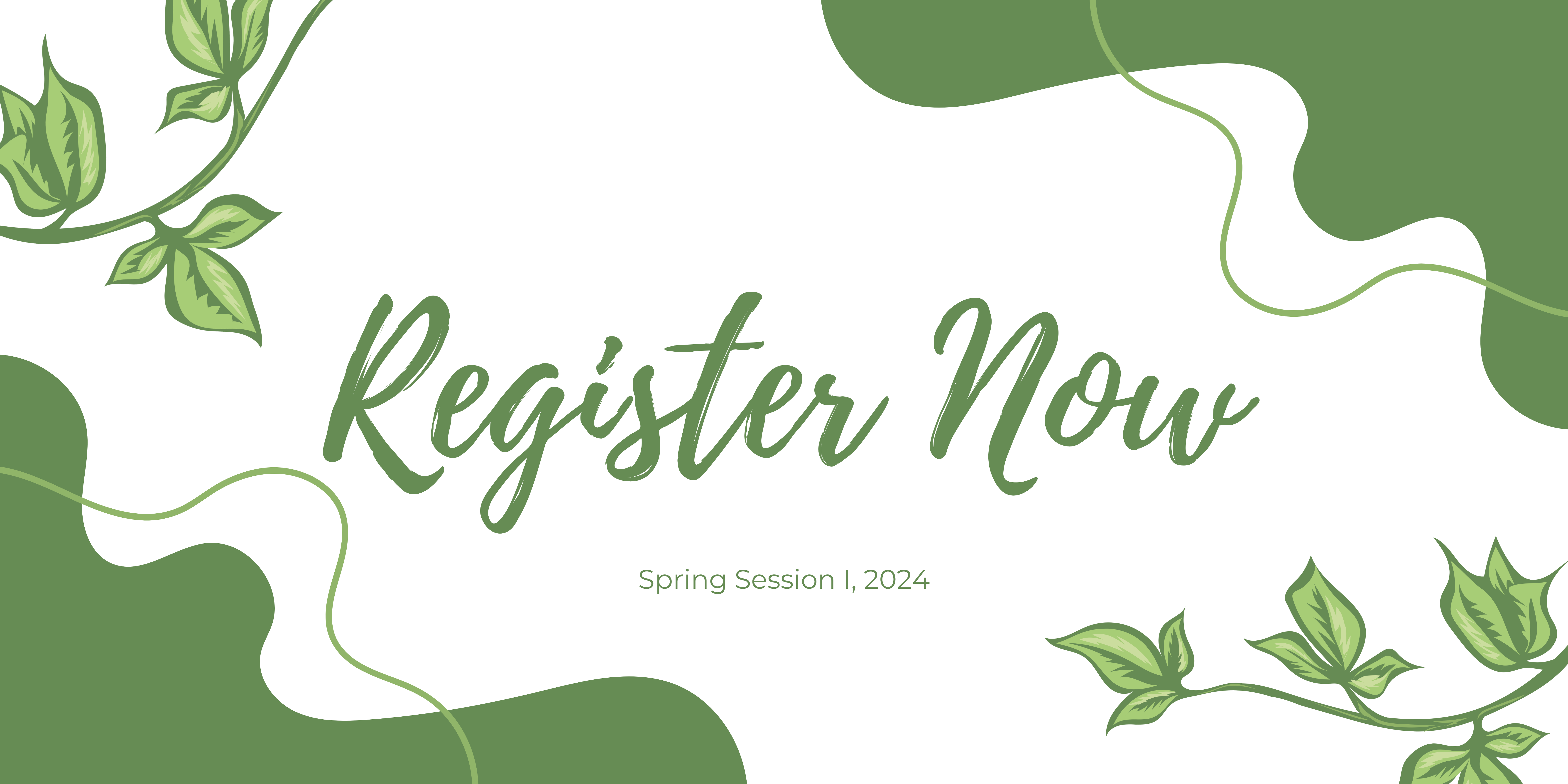
Accounting
BTA 112 – 0022 Principles of Accounting II
Lee Boyar | Mon, Wed 11:45AM – 2:00PM | B-318
This course introduces the student to the partnership and corporate forms of business organization with topics relating to their formation, operation and dissolution. In the area of corporation accounting, further topics explored are stock transactions, long-term liabilities, and retained earnings. Cash flows and financial statement analyses are also covered as are an introduction to manufacturing concern accounting, related statements, and cost and revenue relationships.
Education and Language Acquisition
ELN 101 – 0391 Introduction to Bilingualism
Monika Ekiert | Tue 10:30AM – 12:45PM | C-359
The course provides a general introduction to bilingualism. It covers the rationale, principles, and applications of a bilingual philosophy of learning. It considers the cognitive, psycholinguistic, social, and political aspects of bilingualism. It examines language acquisition theories and issues of language maintenance. It also introduces models of bilingual education and bilingual instruction, including past and present legislation. Experiential learning constitutes a major part of the course.CUNY Pathways: Flexible Core-U.S. Experience in it’s Diversity
English
ENG 102 – 0829 Composition II: Writing through Literature
Noam Scheindlin | Tue 9:15AM – 11:30AM, Thu 10:30AM – 11:30AM | E-340
The course builds on skills introduced in Composition I. Students write critically and analytically about culturally diverse literature and read poetry, drama, and fiction. Students closely read literary texts and are introduced to techniques of literary criticism. They utilize research methods and documentation procedures to write assignments in various academic formats, including a research essay that engages literary critics.CUNY Pathways: Required Core-English Composition
ENG 248 – 0918 Latino/Latina Writing of the United States
Joy Sanchez-Taylor | Mon 11:45AM – 2:00PM, Wed 11:45AM – 12:45PM | E-146, E-144
This course examines the contributions to American literature made by Chicano, Puerto Rican, Dominican and other groups of Latinos/Latinas in the U.S. since the mid-twentieth century. It surveys the variety of Latino/Latina writing, exploring how these writers represent community, class, race, gender, culture, nation, and ethnicity. Fiction, poetry, essays, autobiographical prose, and dramatic works by authors such as Rudolfo Anaya, Sandra Cisneros, Nicholasa Mohr, and others will be studied. CUNY Pathways: Flexible Core-U.S. Experience in it’s Diversity
ENG 103 – 0898 The Research Paper
Karlyn Koh | Tue 1:00PM – 3:15PM | E-401
This course introduces the student to the partnership and corporate forms of business organization with topics relating to their formation, operation and dissolution. In the area of corporation accounting, further topics explored are stock transactions, long-term liabilities and retained earnings. Cash flows and financial statement analyses are also covered as are an introduction to manufacturing concern accounting, related statements, and cost and revenue relationships.
Humanities
HUA 101 – 1010 Introduction to Art
Fern Luskin | Thu 2:15PM – 5:35PM | Online-Synchronous
This course is designed to develop the student’s ability “to see,” while it examines the fundamental nature, meaning, and humanistic value of art. Attention will be given to an examination of the creative process and to the role of the spectator as an active participant in the understanding of Art. Relevant readings will be discussed in relation to specific works of Art. The function of basic compositional elements will be examined. CUNY Pathways: Flexible Core-Creative Expression
HUP 101 – 1299 Introduction to Philosophy
Dana Trusso | Tue 6:00PM – 7:30PM | Online-Synchronous
This course introduces students to the process of philosophical reflection. Utilizing the concept of freedom extensively, it seeks to develop the student’s ability to analyze concepts and to explore life experience in a structured and coherent fashion. Students are encouraged to develop their perceptions by critically examining their own beliefs, attitudes and assumptions in light of the philosophical analyses they encounter. CUNY Pathways: Flexible Core-Individual & Society
Mathematics, Engineering and Computer Science
MAE 101 – 3107 Engineering Lab I
Yves Ngabonziza | Mon 1:00PM – 4:25PM | E-344
This is the first of two engineering laboratory courses. Students meet once a week and are introduced to engineering design through hands-on laboratory work using computer applications. They are introduced to programming a robot to perform a specific task and to basic structural analysis. Additionally, they work in groups on design projects and are expected to use computers for documentation, data analysis, and for maneuvering robots.
MAT 120 – 3337 Elementary Statistics I
Frank Wang | Tue 1:00PM – 3:15PM, Thu 1:00PM – 2:00PM, Thu 2:15PM – 3:15PM | M-161,E-141
This course presents the fundamental concepts and computational techniques of elementary statistics. Topics studied include statistical graphs, measures of central tendency, standard deviation, percentiles, probability, binomial and normal distributions, confidence intervals, hypothesis testing, and linear correlation/regression. Students will use a statistical software package to obtain basic sample statistics and graphs for data analysis; a calculator may be used for routine computations. CUNY Pathways: Required Core-Mathematics & Quantitative Reasoning.
MAT 201 – 3421 Calculus I
Reem Jaafar | Tue Thu 11:45AM – 2:00PM | M-137
This course is the first of a three-course sequence designed to provide students with an appreciation of the usefulness and power of calculus. The course covers the fundamentals of the differential calculus of elementary functions and includes an introduction to integral calculus. Among the topics studied are limits, derivatives, applications of the derivative, and integrals.CUNY Pathways: Flexible Core-Scientific World OR Required Core-Mathematics & Quantitative Reasoning
Natural Sciences
SCB 201 – 141A General Biology I
Natalia Biani | Tue 2:15PM – 3:15PM, Thu 2:15PM – 4:25PM | E-104
This course is part one of a two-semester sequence covering concepts of general biology. Beginning with an introduction to the scientific study of life, the course covers the chemistry of life, cell structure and function, cellular respiration, photosynthesis, cell cycle, and cell division, classical and molecular genetics and gene expression, DNA replication, genetic engineering, development, evolution, speciation, and phylogeny. The laboratory component of the course complements the lectures.CUNY Pathways: Flexible Core-Scientific World
SCB 201 – 141B General Biology I (Lab)
Natalia Biani | Tue 3:25PM – 6:45PM | E-329
This course is part one of a two-semester sequence covering concepts of general biology. Beginning with an introduction to the scientific study of life, the course covers the chemistry of life, cell structure and function, cellular respiration, photosynthesis, cell cycle, and cell division, classical and molecular genetics and gene expression, DNA replication, genetic engineering, development, evolution, speciation, and phylogeny. The laboratory component of the course complements the lectures.CUNY Pathways: Flexible Core-Scientific World
SCC 202 – 239A General Chemistry II
Midas Tsai | Mon 2:15PM – 3:15PM, Wed 9:15AM – 11:30AM | M-155
This course is the second part two-semester sequence covering concepts of general chemistry. It is intended for students planning to major in science or engineering who require one year of chemistry. Among the topics studied are: liquids, solids, solutions, acid-base theory, chemical kinetics, chemical equilibrium, chemical thermodynamics, electrochemistry, and nuclear chemistry.CUNY Pathways: Flexible Core-Scientific World
SCC 202 – 239B General Chemistry II (Lab)
Midas Tsai | Mon 8:00AM – 11:30AM | E-346
This course is the second part two-semester sequence covering concepts of general chemistry. It is intended for students planning to major in science or engineering who require one year of chemistry. Among the topics studied are: liquids, solids, solutions, acid-base theory, chemical kinetics, chemical equilibrium, chemical thermodynamics, electrochemistry, and nuclear chemistry.CUNY Pathways: Flexible Core-Scientific World
SCP 232 – 269A General Physics II
Roman Senkov | Mon 1:00PM – 3:15PM, Tue 1:00PM – 3:15PM | C-723, C-721
This is the second part of a 2-part calculus-based physics sequence for science, computer science, or engineering students. Topics include waves, wave motion, light propagation, geometrical optics, interference and diffraction, electric field and potential, capacitance and dielectrics, magnetic fields and forces, direct and alternating current, Ohm’s law, and electromagnetic waves. Laboratory exercises will use computers with traditional equipment for problem-solving, data collection, and analysis. CUNY Pathways: Flexible Core-Scientific World
SCP 232 – 269B General Physics II (Lab)
Roman Senkov | Thu 11:45AM – 2:00PM | E-348
This is the second part of a 2-part calculus-based physics sequence for science, computer science, or engineering students. Topics include waves, wave motion, light propagation, geometrical optics, interference and diffraction, electric field and potential, capacitance and dielectrics, magnetic fields and forces, direct and alternating current, Ohm’s law, and electromagnetic waves. Laboratory exercises will use computers with traditional equipment for problem-solving, data collection, and analysis. CUNY Pathways: Flexible Core-Scientific World
Social Sciences
SSA 101 – 1802 Cultural Anthropology
Filip Stabrowski | Mon 11:45AM – 2:00PM, Wed 11:45AM – 12:45PM | C-443
This course examines the similarities and differences found in the various types of human cultures and societies. It acquaints students with the basic concepts that help explain differences and similarities. The role of culture and language in determining human behavior is examined as is the interrelationship of aspects of behavior (economics, politics, family, and religion) in different types of societies. Patterns of cultural change will also be discussed. CUNY Pathways: Flexible Core-World Cultures & Global Issues
SSH 106 – 1851 World History from 1500 to the Present Honors Option course*
Robin Kietlinski | Mon 10:30AM – 12:45PM | C-467
This course is an introduction to world history from approximately 1500 C.E. to the present. Students will read primary and secondary sources related to the political, economic, social, and cultural history of humanity in the modern era, including such topics as the development of the nation-state, industrialization, world trade, imperialism, democratic, socialist, and nationalistic revolutions, the position of women in society, population growth, and changes in the human environment.CUNY Pathways: Flexible Core-World Cultures & Global Issues
SSE 104 – 1821 Introduction to Macroeconomics
Choon Shan Lai | Mon 10:30AM – 11:30AM, Wed 10:30AM – 12:45PM | C-209, C-456
This course will provide students with tools and frameworks to understand what determines the aggregate level of economic activity, the levels of production, the level of employment, and prices in relationship to aggregate expenditures. Institutional arrangements of monetary and fiscal policy to address unemployment and inflation will also be covered. CUNY Pathways: Flexible Core-Individual & Society
Liberal Arts
LIB 105 – 1507 Introduction to Ethnic Studies Honors Option course*
Allia Abdullah-Matta | Tue 11:45AM – 2:00PM | C-117
This interdisciplinary course explores (US) Ethnic Studies concepts, theoretical perspectives, and historical foundations, analyzes how race and racism shape the experiences of people of color, and centers their histories, cultures, and perspectives. Students examine race, ethnicity, class, gender, and other identity markers of stratification across political and socio-economic contexts, and engage diverse epistemic and methodological approaches to address colonization/decolonization/resistance.CUNY Pathways: Flexible Core-U.S. Experience in it’s Diversity


